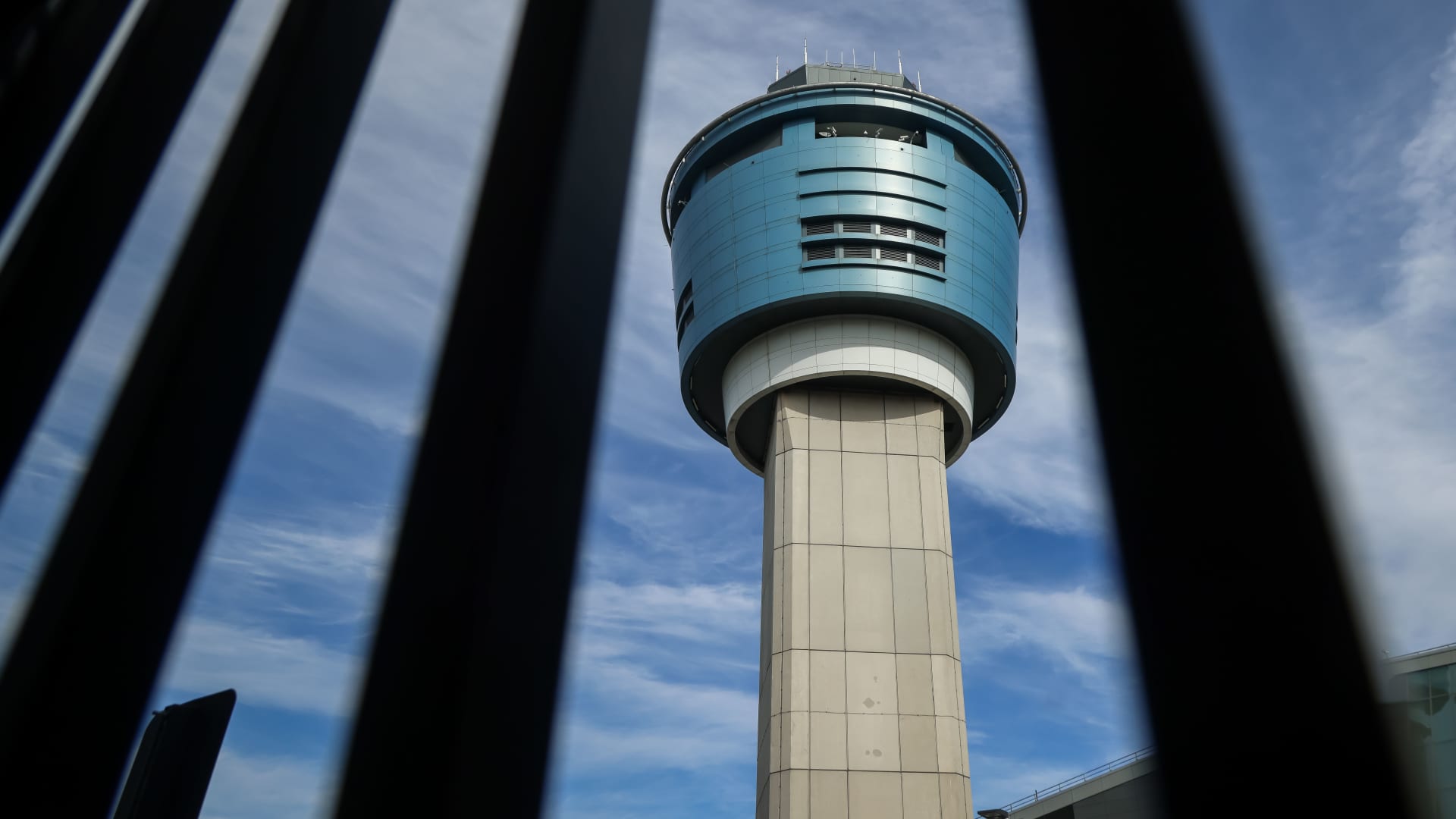The FAA Air Traffic Control tower at LaGuardia Airport (LGA) in the Queens borough of New York, US, on Friday, Nov. 7, 2025.
Michael Nagle | Bloomberg | Getty Images
Flight cancellations eased across the U.S. on Wednesday ahead of a House vote on a funding bill that could end the longest federal government shutdown in history.
House lawmakers could vote around 7 p.m. ET on the bill, which was passed by the Senate earlier this week. The shutdown again put air travel in the spotlight and heightened strains on air traffic controllers, who have been required to work without receiving their regularly scheduled paychecks.
On Wednesday, 811 U.S. departures were canceled, 3.5% of airlines’ schedule, the lowest rate since last Thursday, according to aviation-data firm Cirium.
Trump administration officials on Friday started requiring airlines to trim their schedules, citing safety risks and additional strain on controllers. But the cuts weren’t enough to avoid further disruptions that were worsened by widespread staffing shortages and bad weather, leading to an influx of cancellations and delays last weekend.
Delta Air Lines CEO Ed Bastian said on CNBC’s “Squawk on the Street” that the shutdown will have a financial impact on the carrier but it wouldn’t come close to wiping out the airline’s profits. He warned that he thinks there will be another shutdown at some point and said air traffic controllers should be paid if that happens.

U.S. airline shares were up broadly on Wednesday before the House vote.
Thin air traffic controller staffing has been on a rise during the shutdown that started Oct. 1, leading to thousands of flights being slowed or altogether canceled and disrupting travel plans of 5 million passengers, according to Airlines for America, an industry group that represents the largest U.S. carriers. Some air traffic controllers were forced to take second jobs to make ends meet, the controllers’ union and government officials have said.
Transportation Secretary Sean Duffy and major airlines this week warned that air travel won’t immediately snap back to normal even after the shutdown.
“We’re going to wait to see the data on our end before we take out the restrictions in travel but it depends on controllers coming back to work,” Duffy said at a press conference at Chicago O’Hare International Airport on Tuesday.





